Giulia Mansutti
Ph. D. - Telecommunications Engineer
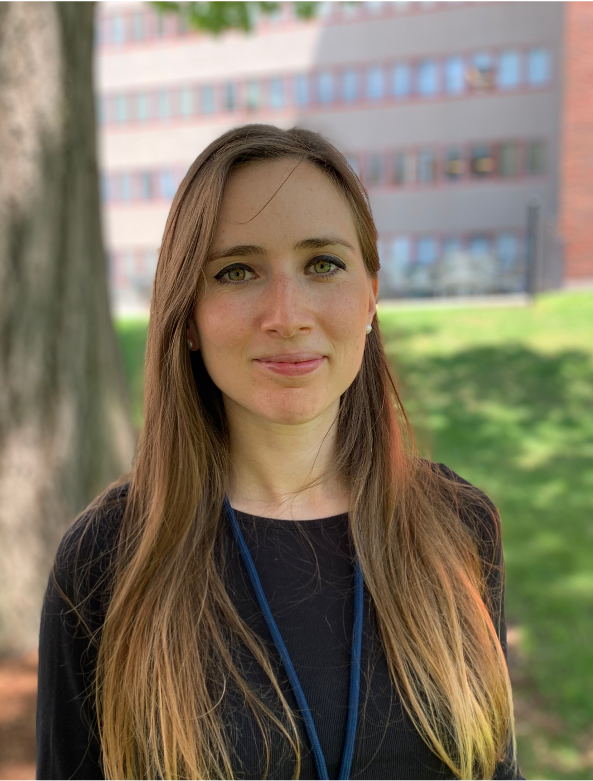
I am a researcher working on biomedical optics at the Wellman Center for Photomedicine (Harvard Medical School and Massachusetts General Hospital). My background is in Electrical and Telecommunications Engineering, with a focus on different applications of electromagnetism.
I received my Ph.D. in Electrical Engineering and Computer Science from the University of Padova (Padova, Italy) in March 2019, with a thesis on the design of innovative antenna systems for telecommunications and health applications. During my Ph.D., I spent one year as a visiting scholar at The University of Queensland (Brisbane, QLD, Australia), where I developed a novel sensor for early-stage skin cancer detection.
I obtained the M.Sc. in Telecommunications Engineering and the B.Sc. in Electrical Engineering and Computer Science, both summa cum laude, from the University of Padova in 2015 and 2013, respectively.
Currently, my research focuses on the development of innovative optical devices for biomedical applications.
In January 2022, I was awarded the Bullock Fellowship (a 60000$ grant) to develop a novel laser speckle imaging (LSI) device for skin cancer detection.
Projects
During my Ph.D., I spent one year as a visiting scholar at The University of Queensland (UQ), Brisbane, QLD, Australia.
Here I had the opportunity to develop a novel substrate integrated waveguide probe for early-stage skin cancer detection.
In particular, together with the Microwave Team at UQ, I designed, fabricated and tested the device on both biological phantoms and real animal tissues. The results showed that our probe is low-cost and accurate to detect the presence of early-stage skin cancer.
This resulted in a publication that was selected as a featured article in IEEE Transactions on Biomedical Engineering.
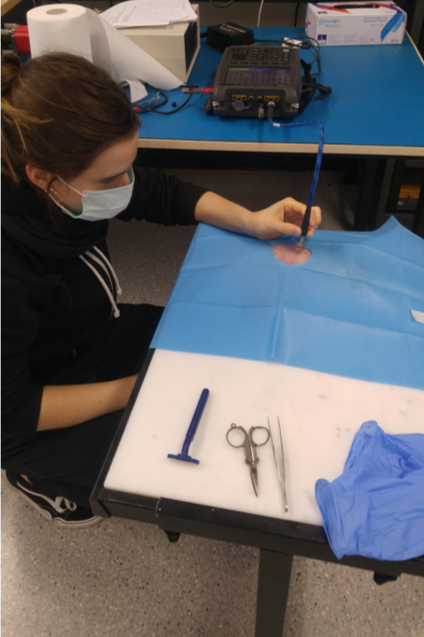
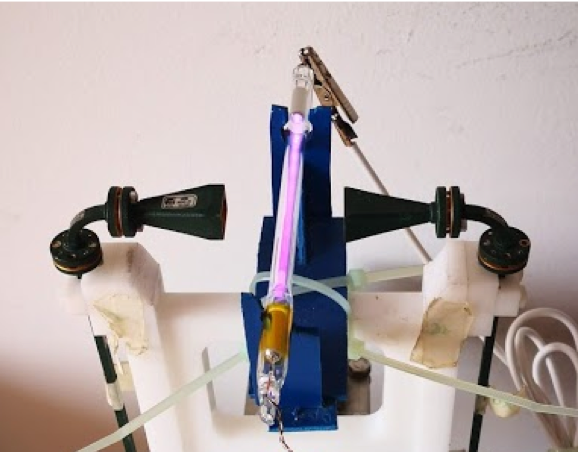
Gaseous Plasma Antennas
Gaseous plasma can be used to receive and trasmit electromagnetic waves. Antennas exploiting this material are extremely versatile: they can be electrically reconfigured with respect to their radiation properties, and they become invisible when the plasma is de-energized.
I have been working on the development of such antennas together with the Photonics and Electromagnetic Group of the University of Padova, and the Center for Space Studies and Activities (CISAS) of the same University.
Specificaly, we were funded by the Italian Space Agency (ASI) to develop the first active gasesous plasma antenna operating above the GHz.
At the beginning of my Ph.D., I was involved in the analysis and design of novel pattern recovery techniques for self-adapting phased array antennas.
These antennas change their shape in time (e.g., when used in wearable devices) and, as a result, their radiation properties are distorted. My task was to develop some type of low-cost pattern recovery technique that could compensate for this distortion.
This project was carried out in collaboration with the North Dakota State University (NDSU, Fargo (ND), USA).
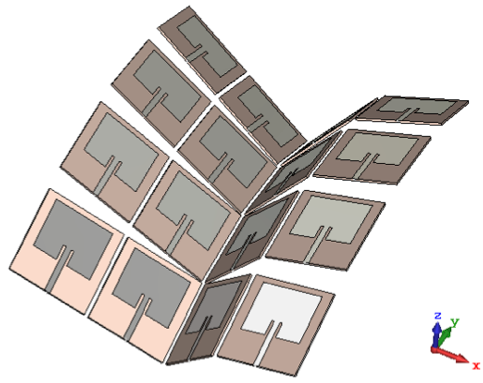
Awards
May 2025
Early Career Scientist Board Representative
American Society for Laser Medicine and Surgery (ASLMS)
I was elected as the new Early Career Scientist Representative on the board of ASLMS.
September 2024
Best Poster Award
Wellman Center for Photomedicine, Harvard Medical School, MGH
Awarded for my poster "Full-field amplitude speckle decorrelation angiography".
July 2024
Best Oral Presentation
Gordon Research Seminar (GRS)
Award for my presentation "Full-field amplitude speckle decorrelation angiography".
August 2023
Best Mentor Award
HST-Wellman Summer Institute, Harvard and MIT
Award received for my mentoring activity at the HST-Wellman Summer Institute.
January 2022
Bullock Fellowship
Wellman Center for Photomedicine, Harvard Medical School, MGH
I was awarded this 60000$ grant to develop an innovative laser speckle imaging (LSI) device for skin cancer detection.
October 2020
IE&T Outstanding Innovation in Digital Health and Social Care
2020 E&T Innovation Awards
Our innovative non-invasive skin cancer detection system was shortlisted for this Award sponsored by the Institution of Engineering and Technology (IE&T).
October 2018
Young Researcher Award
Brain meets Digital Enterprises
Award granted by the Human Inspired Technology Research Center (HIT) of the University of Padova for the presentation of the project "Design of innovative antenna systems for early-stage skin cancer detection".
October 2018
Young Researcher Award
Brain meets Digital Enterprises
Award granted by the Human Inspired Technology Research Center (HIT) of the University of Padova for the presentation of the project "Design of innovative antenna systems for early-stage skin cancer detection".
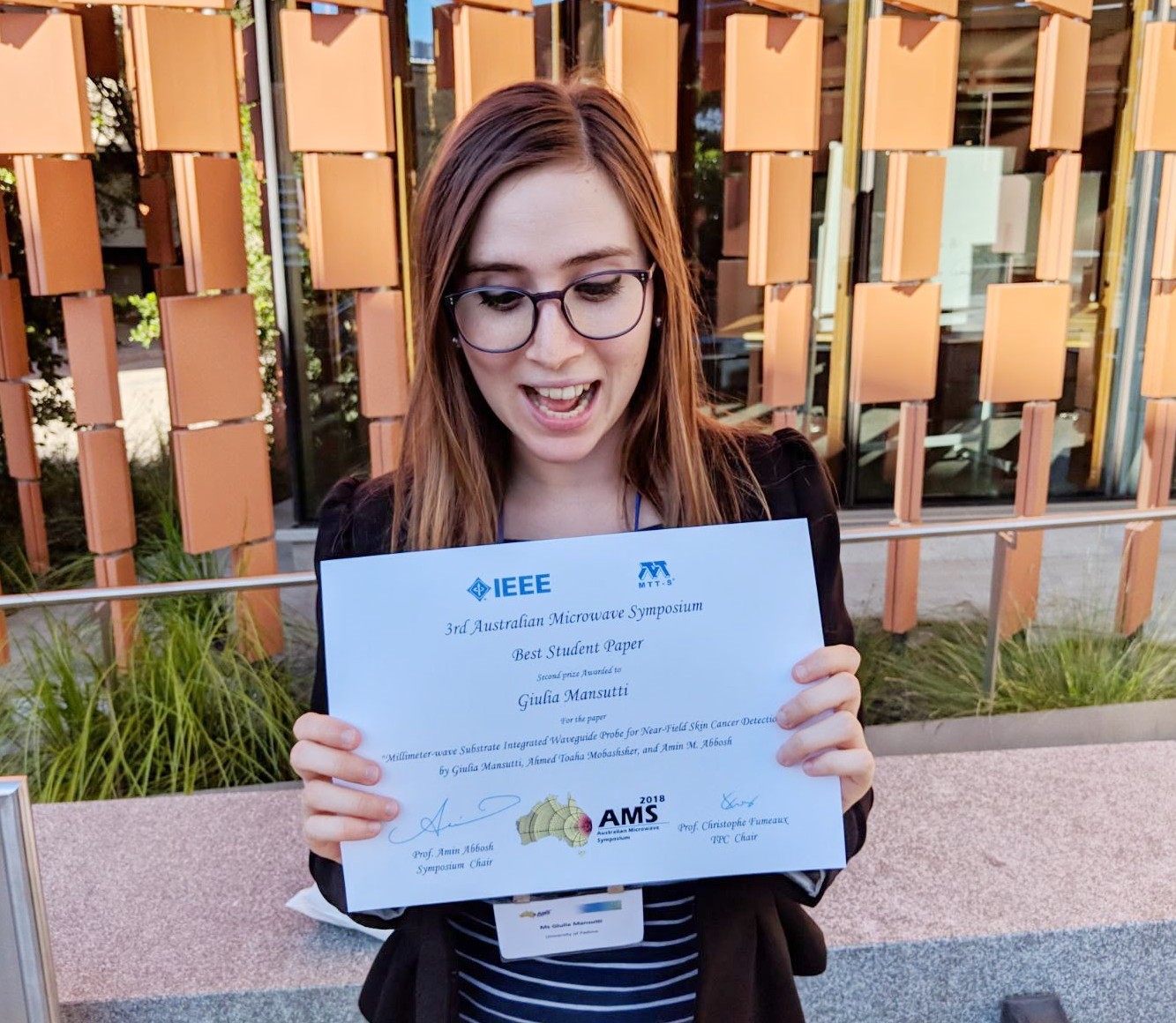
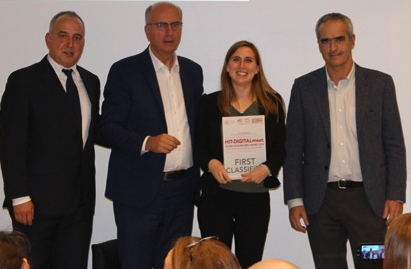
Publications
You can find my publications on Google Scholar.